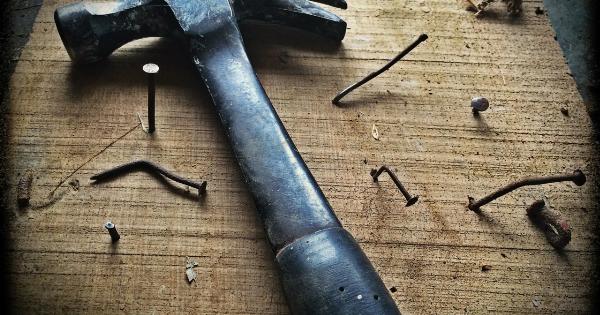A cracked tooth can be a painful and concerning dental issue. Whether it is a small crack or a severe fracture, it is essential to take immediate action to preserve the tooth and prevent further damage.
In this article, we will discuss steps you can take to protect and preserve a cracked tooth before seeking professional dental treatment.
1. Rinse Your Mouth
The first step in preserving a cracked tooth is to rinse your mouth with warm water. This will help clean the area and remove any debris or food particles that may be stuck around the tooth.
Gently swish the water around your mouth for a few seconds before spitting it out.
2. Apply Cold Compress
If you experience any swelling or pain as a result of the cracked tooth, apply a cold compress to the outside of your mouth. Wrap a bag of ice or a cold pack in a thin cloth and hold it against the affected area for about 15 minutes.
This can help reduce swelling and numb the area, providing temporary relief.
3. Take Over-the-Counter Pain Relievers
To manage the pain associated with a cracked tooth, you can take over-the-counter pain relievers like acetaminophen or ibuprofen. Follow the instructions on the packaging and do not exceed the recommended dosage.
However, it is important to note that pain relief should be temporary, and you should still seek professional dental care as soon as possible.
4. Avoid Chewing on the Affected Tooth
To prevent further damage to the cracked tooth, avoid chewing on it or biting down with excessive force. Stick to soft foods that require minimal chewing, and try to chew on the opposite side of your mouth.
This will help minimize the pressure on the cracked tooth and reduce the risk of worsening the fracture.
5. Use Dental Wax or Temporary Filling
If the cracked tooth has a sharp or jagged edge, you can use dental wax or temporary filling material to smooth it out.
Dental wax can be applied to the cracked tooth, creating a barrier between the tooth and your tongue or cheek, preventing further irritation. Temporary filling material can help protect the tooth and provide temporary relief until you can see a dentist.
6. Avoid Hot or Cold Foods and Drinks
Hot or cold foods and beverages can cause sensitivity and discomfort in a cracked tooth. To prevent aggravating the tooth, avoid consuming extremely hot or cold items. Opt for lukewarm or room temperature foods and drinks instead.
7. Maintain Good Oral Hygiene
Even with a cracked tooth, it is important to maintain good oral hygiene. Continue brushing your teeth twice a day with a soft-bristled toothbrush and fluoride toothpaste. Be gentle around the cracked tooth, avoiding excessive pressure or scrubbing.
Additionally, floss daily to keep the area clean and prevent any bacterial buildup.
8. Rinse with Saltwater
To reduce inflammation and promote healing, rinse your mouth with saltwater solution. Mix half a teaspoon of salt in 8 ounces of warm water and gently swish it around your mouth for 30 seconds before spitting it out.
Saltwater can help kill bacteria and reduce any swelling or irritation associated with the cracked tooth.
9. Schedule an Appointment with a Dentist
While the above steps can help temporarily preserve a cracked tooth, it is essential to schedule an appointment with a dentist as soon as possible. A dentist will be able to assess the severity of the crack and provide the appropriate treatment.
Ignoring a cracked tooth or delaying professional care can lead to further complications and potentially jeopardize the tooth.
10. Follow the Dentist’s Recommendations
Once you see a dentist, they will diagnose the crack and recommend the necessary treatment. This may include procedures like dental bonding, a crown, or in severe cases, a root canal.
It is crucial to follow the dentist’s recommendations and undergo the recommended treatment to prevent further damage and restore the tooth’s functionality.
Conclusion
A cracked tooth requires immediate attention and proper care to ensure its preservation. By following the steps mentioned above, you can temporarily protect the tooth and alleviate pain until you can see a dentist for professional treatment.
Remember, seeking prompt dental care is vital in preserving the tooth and preventing complications.

























